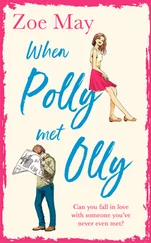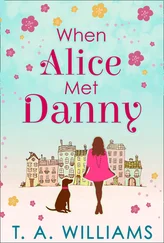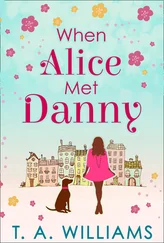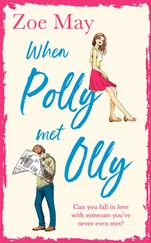It was a stunning house once we’d done all the renovations, and it was a shame to leave behind all the fruits of our hard labour, but it wasn’t quite right for our needs any more. We took a deep breath, sold up and moved to a new home on a nearby country estate. There we had sufficient outbuildings to stable all the horses, but the hens had to share a little brick outhouse with my deep freeze. Michael’s son Tod was bemused when I sent him to fetch a pack of frozen peas one day and he had to flick off hen droppings before bringing them into the kitchen.
‘I come to you for my fix of antibodies before the return to London life,’ he laughed, but I noticed when I served dinner later that he stared long and hard at his plate before picking up a fork.
Our breeding programme got off to a good start, and I was involved in every aspect of the foals’ upbringing. Often I was the one to check their position when the mare went into labour; one foreleg should emerge first, then the other, then the muzzle. I’d have to make sure the newborn foal could stretch up and reach its mother’s teats to get antibody-containing colostrum within the first few hours. And I’d be there for the first steps outdoors and all the major milestones of its first year of life. I hated letting them go when Newmarket sales came around. They were my babies. It was hard to hand over the responsibility to someone else, but that had been the plan. We hoped that out of our very small breeding operation we might achieve a winner or two. If they did well, that would be great, but if they didn’t we would stop. Whatever happened, we felt we had a responsibility for any life we brought into the world.
Neither Michael nor I are the kind of people who are driven to make a fortune, and it’s just as well. Belief in what we are doing has always been of primary importance, and we tend to make decisions instinctively rather than being guided by commercial logic. We both have strengths that complement the other, and together we usually seem to make the right decisions. But the day Michael went to Ascot sales on his own, with the idea of picking up another one or two well-bred mares, I should have had an inkling that the best-laid plans can go awry. He ended up coming home not with some mares but with a discarded gelding, an ex-hurdler that had never been particularly successful on the racecourse and would have been heading for the abattoir had Michael not stepped in.
‘It’s one thing raising your hand by mistake at a hen sale,’ I said caustically, ‘but to raise it deliberately at a horse sale is something else again.’
‘You would have done the same,’ he told me. ‘Just look at him.’
He was right. I would have.
Charlie was a sad-looking horse, so thin that his backbone was sticking out and we could count all his ribs, and he had the sour smell that we were to learn is characteristic of malnourished animals. What made me angriest when I looked closely was that someone had clipped him to try to smarten him up for the sale, and it must have been horribly uncomfortable for that poor horse to feel clippers running all over his sticking-out bones. It was shameful. We put some spare duvets under his rug to keep him warm, gave him a course of wormers, had him checked out by the vet and fed him carefully. Within three months of receiving this kind of care, he was a completely different horse. He was bay with white socks, good bones and a solid, dependable character. We found he was well trained and once he was healthy enough to be taken out hacking, he turned out to be a lovely horse to ride.
The transformation from the sorry creature Michael had brought home with him to this healthy, intelligent, good-natured animal was dramatic and it made us both furious to think that this young horse – only five years old – would have had no chance of a future. The meat man had actually been bidding against Michael in the auction. Within nine months we had found Charlie a new home where he settled in happily.
The last thing you should do as a breeder is take on ‘charity cases’ that drain your precious resources without contributing to the balance sheet. We kept selling our yearlings, but at the same time we could never walk away from a horse in need. We just didn’t have it in us.
One day we went to buy a new trailer at a farm that was miles from anywhere. In a field nearby, we could see three horses standing around looking dejected. One in particular looked up at us hopefully and within seconds Michael had leapt the fence to go and have a closer look.
‘Uh-oh, this is not good,’ I thought to myself. And I was right. The upshot was that the trailer wasn’t empty when we drove home later that day.
Red was a five-year-old stallion from a leading blood-line and although he wasn’t in terrible condition, he was unsettled because he had been put in a field with some mares and his instinct was to keep trying to mount them. This gave us a problem, of course, because where would we keep him that he wouldn’t be bothered by all our mares? Fortunately I found a knowledgeable horse-woman, Sandra, who lived near us and was happy to let him stay in one of her stables. After a veterinary check-up and a few weeks of intensive care, we found he was a happy and quite beautiful horse, with a deep red sheen to his coat. He didn’t like being turned out into a field for any length of time or he would panic, but he was perfect for our mares, behaved like a true gent around them, and did his job when required.
The next horse we ‘rescued’ was one that I found while I was out riding Chic. As we rode through a semi-deserted, dilapidated farmyard, Chic became uncharacteristically jumpy and unsettled, as if she knew something I didn’t. An instinct made me decide to have a peek inside a closed cob barn, and a dreadful sight met my eyes: a skinny chestnut mare was lying on a filthy bed, with some mouldy old hay in the corner beside a bucket of stale, greasy water. She had dark filthy patches on her sides from lying in her own droppings and she appeared listless, with her eyes closed, even when I spoke to her.
I had a lump in my throat as I stroked her and whispered words of comfort. It was hard to leave her there, but she obviously belonged to someone and I knew I couldn’t just steal her. Choked with emotion, I went home and told Michael about her, and within the day we’d tracked down the owner and agreed a deal for the horse, which was named Betty. I went back to the barn, slipped a bridle over her head and led her outside into the sunshine. She blinked hard, unaccustomed to the light, but let me lead her on the four-mile walk home, stopping every now and then to munch on some grass by the roadside. We put her in a stable next to Chic with a deep straw bed, and I could tell she was content by the way she settled down and closed her eyes. She knew she was safe.
It was gratifying how quickly horses transformed when they got decent care, turning from depressed, unhealthy animals into lively, happy characters in a short space of time. The more horses we rescued, though, the greater the financial burden on Michael and me. To try to make ends meet, I took a job as a chef at a nearby college, making lunch and tea for the students, and my days became completely dominated with producing food for animals and humans. I got up at five to do the animals first, then made my way to the college by seven. I’d cook until lunchtime then slip home for a few hours to do the housework and chores on the farm. At four I’d feed the horses once more, then return to the college at five to make tea for the students. Then when I got home at seven in the evening, I would tuck up the horses for the night and fall into my own bed not long after. It wasn’t ideal by any means.
Despite this extra income, we couldn’t afford to heat the whole house over the winter so we started living in our bedroom, where there was a sweet little Victorian fireplace in which we could burn coal and logs. We moved the television up there and were quite comfortable, except for the huge shock to the system when we had to use the loo or go to the kitchen to make a cup of tea. As soon as I left the bedroom, the Arctic air chilled me to the bone, and it took ages to get warm again afterwards.
Читать дальше
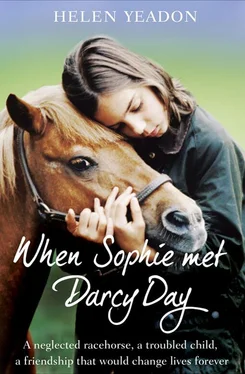
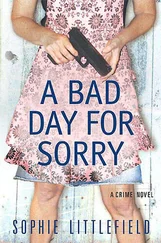
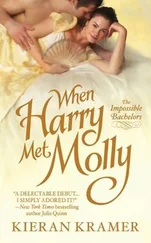
![Джулиан Ассанж - Google не то, чем кажется [отрывок из книги «When Google Met WikiLeaks»]](/books/405461/dzhulian-assanzh-google-ne-to-chem-kazhetsya-otryvok-thumb.webp)



